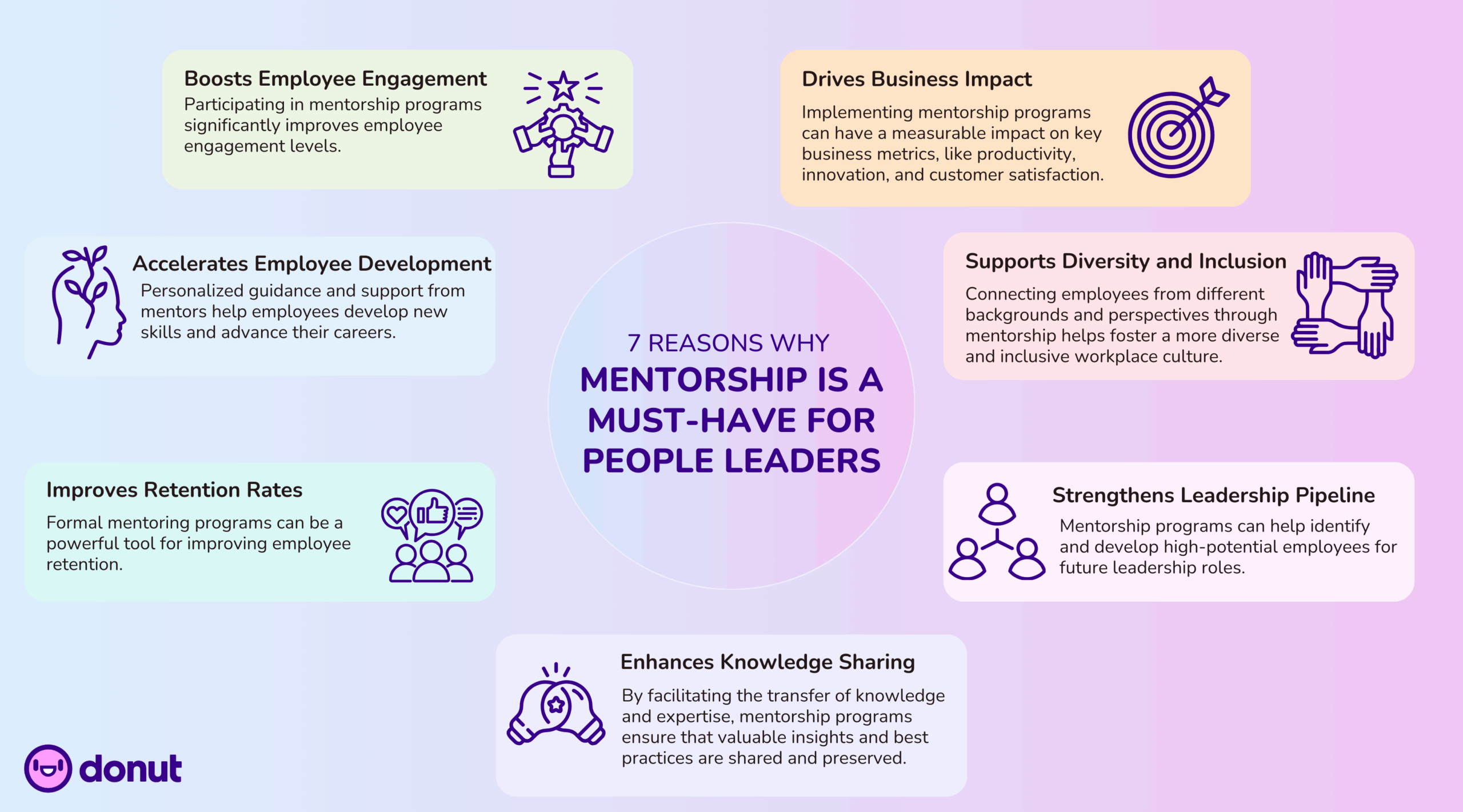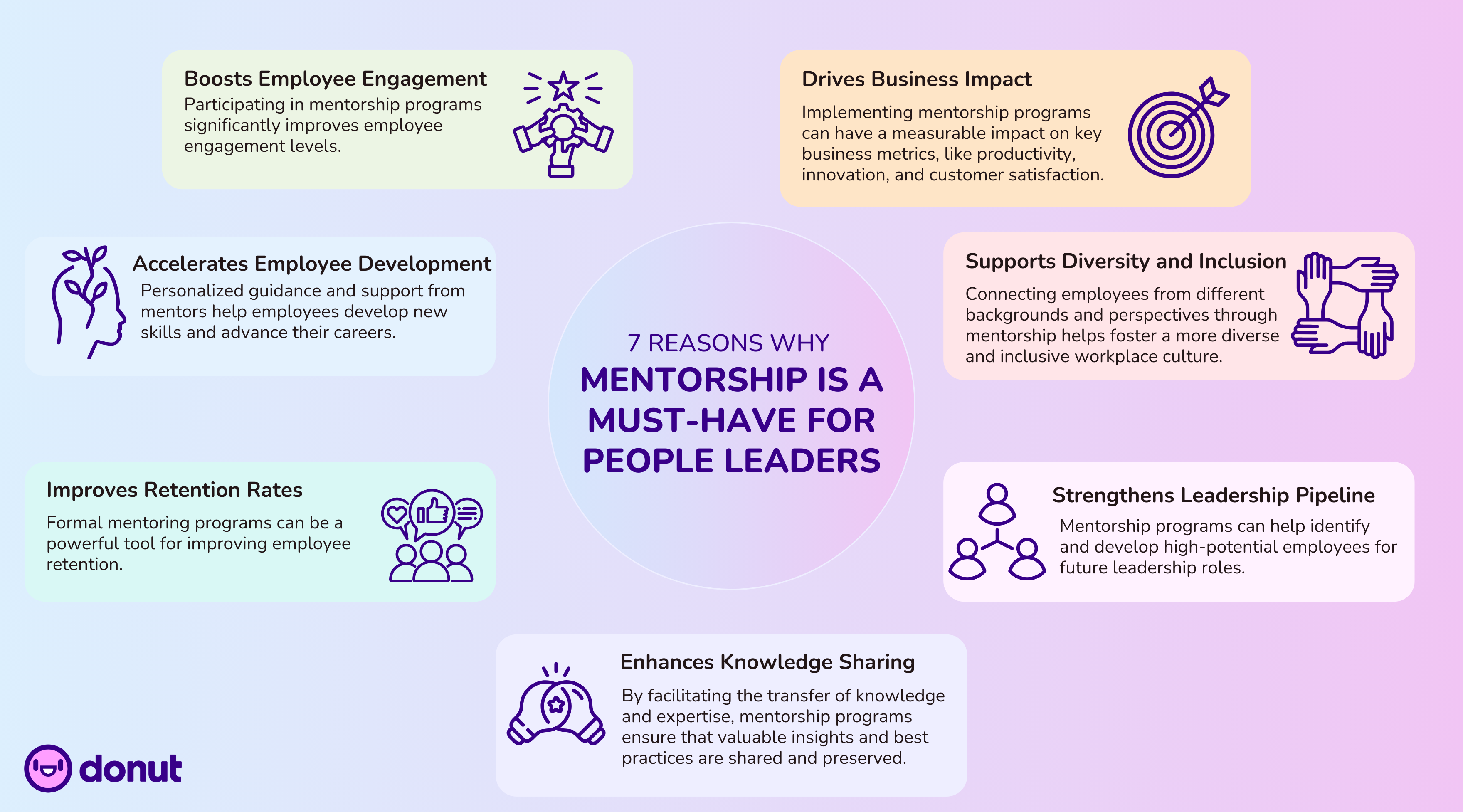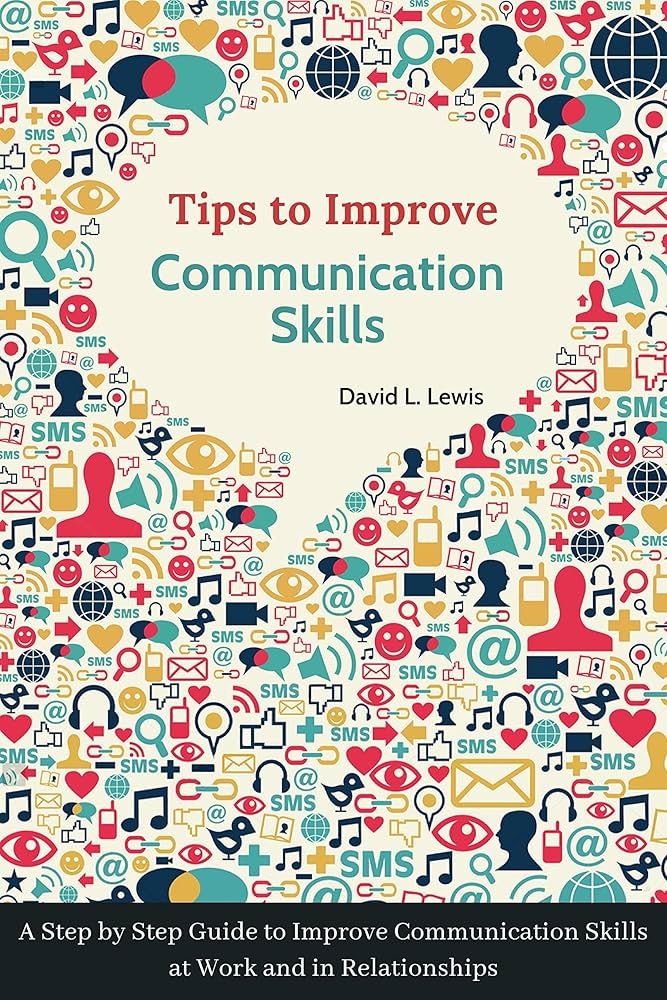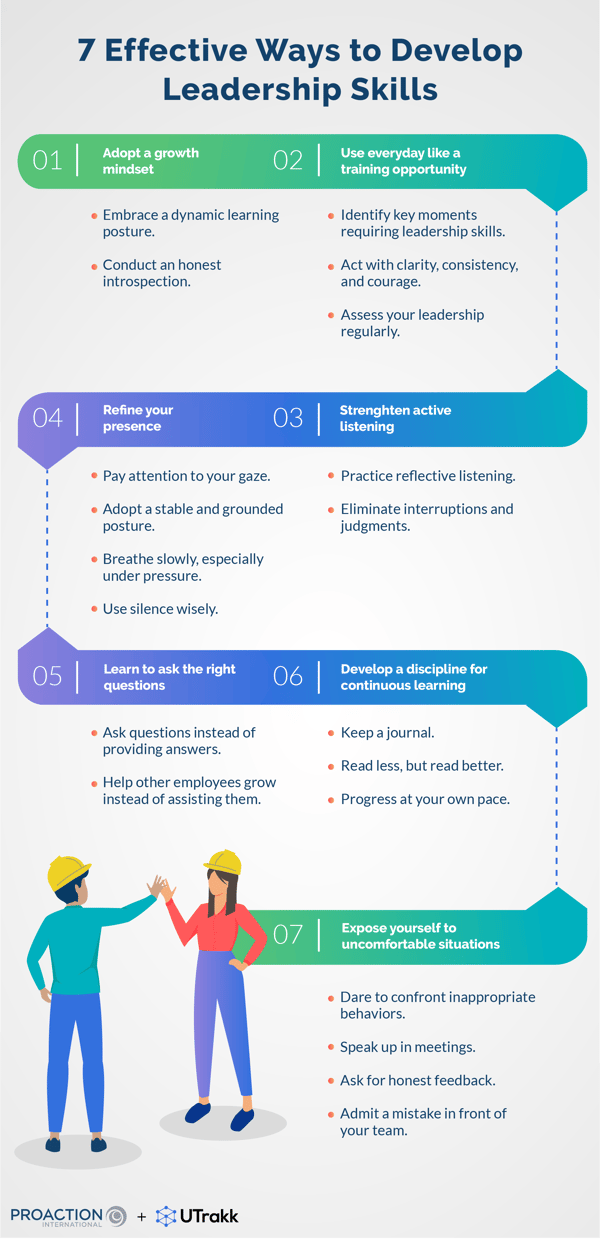How Mentoring Others Can Strengthen Your Own Professional Skills

Have you ever noticed how explaining complex concepts to someone else can clarify your own understanding? Mentoring colleagues or newcomers is more than just a benevolent act; it’s a powerful way to enhance your professional skills. As mentors, we often discover new dimensions and nuances in our field by guiding others through their learning journey.
In history, skilled artisans often honed their craft further while teaching apprentices. This isn’t just anecdotal – a study from the Harvard Business Review found that professionals who engage in mentoring are 20% more likely to earn a higher salary. By mentoring, you not only contribute to someone’s growth but also reinforce your own expertise and adaptability in the ever-evolving professional landscape.

How Mentoring Others Can Strengthen Your Own Professional Skills
Mentoring can be a game-changer for both the mentor and the mentee. By sharing your knowledge, you reinforce what you’ve learned. Explaining concepts to others often clarifies your own understanding. It helps you see things from different angles, improving your critical thinking skills. Hence, mentoring boosts your confidence and competence in your field.
Engaging in mentorship also hones your communication skills. To effectively guide someone, you need to explain ideas clearly. According to this post, clear communication is crucial for any professional. Listening to questions from your mentee can also highlight areas where your explanations may need improvement. This two-way interaction strengthens your capacity to articulate complex ideas simply.
In addition, mentoring develops your leadership skills. You’re not just providing answers but guiding someone to find their own solutions. This process encourages patience and empathy. You learn to motivate and inspire, qualities essential for any leader. Hence, mentorship prepares you for leadership roles.
Feedback is another valuable aspect of mentoring. As you offer constructive criticism, you also practice receiving it. This habit leads to self-reflection and continual improvement. According to this article, mentoring helps create a culture of feedback, which is vital for growth. Hence, mentoring benefits you as much as it does the mentee.
Exploring the Dual Benefits of Teaching and Learning
Teaching and learning are two sides of the same coin, offering countless benefits. When you teach, you not only impart knowledge but also solidify your own understanding. This dual process enriches both the teacher and the learner. It promotes a deeper comprehension of the subject matter. This synergy creates a win-win situation for everyone involved.
One amazing aspect of teaching is the opportunity for continuous learning. As a teacher, you often encounter fresh perspectives from your students. These new viewpoints can broaden your own knowledge base. You never stop learning because every interaction presents a chance to see things differently. This ongoing learning process keeps your skills sharp and relevant.
Sharing knowledge can also be incredibly fulfilling. Knowing that you’re helping someone else grow can boost your own motivation. It creates a sense of community and shared purpose. You become part of a larger network. This fulfillment can enhance your overall job satisfaction.
The teacher-student relationship helps build essential soft skills. Effective communication, patience, and empathy are regularly put to the test. According to this article, mentoring boosts these skills, making them transferable to various professional settings. These soft skills are vital for both personal and professional growth. Thus, teaching and learning together foster a well-rounded skill set.
The Role of Communication in Effective Mentoring
Effective mentoring hinges on clear communication. When mentors articulate their thoughts well, mentees can easily grasp the concepts. This clear exchange of ideas lays the foundation for a successful mentorship. Without good communication, even the best advice can go unheeded. It’s the bridge that connects knowledge and understanding.
Active listening plays a crucial role in mentoring. By truly hearing what the mentee says, mentors can offer more tailored advice. This attentive approach shows respect and builds trust. It ensures that the guidance provided is relevant and helpful. Thus, listening actively is as important as speaking clearly.
Non-verbal cues are also vital in mentoring. Body language, eye contact, and facial expressions all convey important messages. According to this article, these non-verbal signals can strengthen the mentor-mentee relationship. They add depth to the communication process. This makes the mentoring experience more engaging and effective.
Communication skills cultivated through mentoring are transferable to other areas. These skills are beneficial in team settings, client interactions, and leadership roles. Effective communication fosters collaboration and problem-solving. This makes you a more valuable asset in any professional environment. The benefits extend far beyond the mentoring relationship.
Developing Leadership Skills Through Mentorship
Mentoring is a powerful way to develop leadership skills. When you mentor someone, you take on a role similar to that of a leader. You guide, inspire, and support your mentee, much like a leader would with their team. This experience can greatly enhance your ability to lead others. It builds your confidence and effectiveness in taking charge.
One key leadership skill developed through mentorship is decision-making. As a mentor, you often help your mentee navigate complex situations. This requires you to weigh options and make informed choices. Practicing this skill regularly sharpens your decision-making abilities. Consequently, you become more adept at making tough calls in real-life leadership roles.
Problem-solving is another essential leadership skill that mentorship can improve. Mentors assist mentees in overcoming obstacles. This collaborative effort enhances your ability to think critically and creatively. By solving problems together, you learn different strategies and approaches. These skills are valuable in any leadership position.
Empathy is crucial for effective leadership. Mentoring teaches you to understand and share the feelings of your mentees. This emotional intelligence is important for building strong team relationships. It allows you to connect with and motivate your team members better. Thus, empathy gained through mentorship enriches your leadership capabilities.
Communication skills are refined through the mentoring process. Leaders need to convey ideas clearly and listen actively. Mentorship provides a platform to practice these skills regularly. This improves your ability to communicate effectively in various situations. Enhanced communication skills make you a more competent and persuasive leader.
Feedback Loops: How Giving Advice Enhances Self-Reflection
Giving advice creates a valuable feedback loop that promotes self-reflection. When you mentor someone, you articulate your thoughts clearly and analyze your own actions. This process helps you reflect on your experiences and learn from them. The insights gained can lead to personal and professional growth. Thus, mentoring enhances your ability to self-reflect.
While mentoring, you often explain strategies and solutions to your mentee. This forces you to think critically about your own approach. Analyzing your methods can reveal areas for improvement. You may identify strengths and weaknesses you hadn’t noticed before. This critical evaluation is a key aspect of self-reflection.
Receiving feedback from your mentee is equally important. Their questions and observations can offer new perspectives. This feedback helps you reassess your actions and decisions. It encourages you to consider different viewpoints and adapt accordingly. Hence, the feedback loop benefits both the mentor and the mentee.
Feedback loops also foster continuous learning. By engaging in regular self-reflection, you stay updated with new techniques and ideas. This keeps your skills relevant and sharp. Whether in a formal or informal setting, the practice of giving and receiving feedback is invaluable. It ensures you remain open to growth and improvement.
The feedback loop established through mentoring enhances your self-awareness. Understanding how others perceive your advice can deepen your understanding of your own behaviors. This awareness is crucial for effective self-reflection. It helps you become more mindful of your actions. Thus, the feedback loop enriches both your professional and personal life.
Expanding Professional Networks by Connecting with Mentees
Connecting with mentees can significantly expand your professional network. Each new relationship opens doors to their networks as well. This ripple effect fosters diverse connections you might not make otherwise. These expanded networks offer new opportunities and insights. Hence, mentorship is a powerful networking tool.
Building relationships with mentees also enhances your reputation. As you guide and support them, others notice your expertise and willingness to help. This positive image can attract more professional connections. A strong reputation as a mentor reflects well in broader professional circles. This leads to further networking and growth.
Mentorship allows you to stay updated on industry trends. Mentees often bring fresh perspectives and new information. This exchange of knowledge keeps you informed and adaptable. Staying current is vital in any field. Thus, your network expands with valuable insights from various sources.
Mentees can introduce you to different industries and sectors. This cross-industry networking broadens your horizons and opportunities. You gain insights and connections that you wouldn’t encounter in your specific field. This diverse network can foster innovation and collaboration. It makes you more versatile and resourceful.
Lastly, connecting with mentees fosters a supportive professional community. These relationships often evolve into long-term associations. A strong, supportive network contributes to career resilience and growth. Hence, mentoring is not just a one-way street but a mutual path to broader professional success.
Key Takeaways
- Mentoring improves your communication skills by teaching clear expression.
- It fosters self-reflection, helping you learn from your experiences.
- Connecting with mentees expands your professional network significantly.
- Mentorship enhances leadership skills like decision-making and empathy.
- It keeps you updated with fresh perspectives and latest trends.

Conclusion
Mentoring others is far more than just guiding someone in their career. It improves your professional skills, from communication to leadership, making you a more effective professional. The mutual growth experienced benefits both mentor and mentee.
Furthermore, the connections and networks formed through mentorship add immense value to your career. By embracing mentoring, you invest in your own continuous learning and personal development. This makes you not just a mentor, but a better professional overall.






